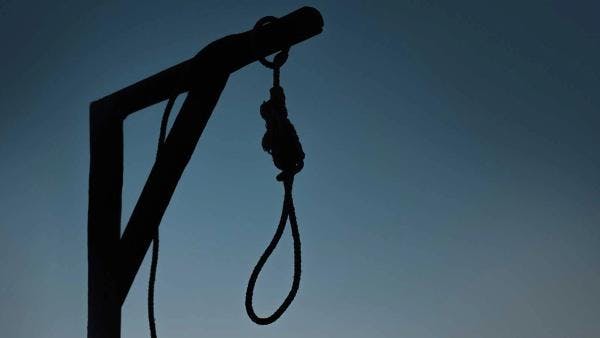Alireza Jalilian - Unsplash
Cessez les exécutions pour des infractions liées aux drogues en Arabie Saoudite – Lettre ouverte d’organisations de la société civile
L'IDPC se joint à plus de 30 organisations de la société civile pour exhorter les organismes internationaux de contrôle des drogues à appeler le gouvernement saoudien à cesser immédiatement les exécutions pour des infractions liées aux drogues. Pour en savoir plus, en anglais, veuillez lire les informations ci-dessous.
Harm Reduction International and the European Saudi Organisation for Human Rights, together with 34 co-signing organisations, urge the United Office on Drugs and Crime (UNODC) and the International Narcotics Control Board (INCB) to take all possible steps to halt the spate of drug-related executions witnessed in Saudi Arabia since 10 November 2022; against official commitments and international standards.
Since January 2020, Saudi Arabia had halted executions for drug-related offences, and in January 2021 the head of the official Human Rights Commission, Awwad Al-Awwad, had announced their suspension, deeming it intended to “give a second chance” to individuals not facing charges for violent crimes.
On November 10, 2022, Saudi Arabia suddenly and without warning resumed executions for drug-related crimes, and as of November 24, 2022, it announced 20 executions for drug crimes. According to data published by the Saudi Ministry of Interior, the victims are all men, and of the following nationalities: 8 of Saudi, 5 of Syrian, 3 of Pakistani, 2 of Nigerian, and 2 of Jordanian nationality.
The Saudi government’s handling of the death penalty is shrouded in secrecy, as the Kingdom does not publish the number of individuals facing punishment, their names, or their legal status. Despite this, tracking by ESOHR confirms that dozens of detainees are currently on death row for drug offenses, with foreign nationals (including migrant workers) and individuals from vulnerable socioeconomic backgrounds overrepresented. All of them are now to be considered at imminent risk of execution. Among them is Jordanian citizen, Hussein Abu Al-Kheir, who was arbitrarily detained, sentenced to death, and is now facing imminent execution after being told he was being moved to a ‘death cell’, where his execution can be carried out without any prior warning. The UN Working Group on Arbitrary Detention (WGAD) found that there is no legal basis for Mr Al-Kheir’s detention, and concluded that his death sentence should be overturned and he should be released immediately.
Monitoring by ESOHR confirms the lack of basic standards for a fair trial in capital drug cases. In addition to being subjected to torture and ill-treatment, defendants are deprived of their most basic rights, including the right to adequate legal defense, and the right to an interpreter when needed.
While at the international level 146 states including 20 members of the Organisation of the Islamic cooperation (on 57 member states) have abolished the death penalty or observe a moratorium, Saudi Arabia remains one of the top executioners in the world.
Saudi Arabia’s sudden decision to resume executions for drug crimes is a very disturbing indicator, and risks leading to an unprecedented surge in executions in the country. This is particularly troubling, considering that 147 sentences have been implemented since the beginning of 2022.
Such resumption is in official disregard of the promises previously made by high level officials, as well as international standards. Regarding the former, in addition to the Human Rights Commission’s announcement, Crown Prince Mohammed bin Salman repeatedly declared that there is an official effort to limit the use of this form of punishment; most recently in March 2022, when he claimed that the death penalty “has become limited to cases in which one person kills another. ” On the latter, we reiterate that drug offences do not meet the threshold of ‘most serious’ crimes to which the death penalty must be restricted pursuant to international standards; and that the death penalty for drug offences also contradicts international drug control law, as indicated by UNODC and the INCB.
On 22 November, the UN High Commissioner for Human Rights urged the Saudi Government to halt Al-Kheir’s reported imminent execution, and called on “the Saudi authorities to adopt a formal moratorium on executions for drug-related offenses, to commute death sentences for drug-related offenses, and to ensure the right to a fair trial for all defendants, including those charged with such offenses, in line with its international obligations.”
Our call to UNODC & INCB:
- Urgently and publicly denounce the 20 executions for drug offences reported since November 10, 2022;
- Call on Saudi Arabia to abide by its own commitment to halt executions for drug crimes;
- Engage with Saudi authorities with an eye to receiving a commitment to reinstate a moratorium on all pending executions for drug crimes and review the sentences of all individuals on death row for drug offences; and
- Seek assurances that Mr Al-Kheir will not be executed and will be released immediately, in line with WGAD recommendations.
Co-signatories:
- Abdorrahman Boroumand Centre on Human Rights in Iran
- Acción Técnica social
- Al-Qst
- Andean Action
- Anti-Death Penalty Asia Network (ADPAN)
- Bahrain Centre against Torture
- Capital Punishment Justice Project
- Citywide Drugs Crisis Campaign
- Correlation – European Harm Reduction Network
- Drug Policy Alliance
- Eleos Justice, Monash University
- Ensemble Contre la Peine de Mort (ECPM)
- European Saudi Organisation for Human Rights (ESOHR)
- Harm Reduction Australia
- Harm Reduction International (HRI)
- Helsinki Foundation for Human Rights
- HIV Legal Network
- Instituto Ria
- Intercambios Civil Association
- International Drug Policy Consortium (IDPC)
- Latinoamérica Reforma
- Lawyers Collective
- LBH Masyarakat
- Medicines du Monde
- World Organisation Against Torture (OMCT)
- Organisation for the Prevention of Intense Suffering (OPIS)
- Release
- Reprieve
- Rights Reporter Foundation
- Safer Drug Policies Norway
- Salam for Democracy and Human Rights
- SSDP International
- Stella, l’amie de Maimie
- Transform
- Women and Harm Reduction International Network (WHRIN)
- World Coalition Against the Death Penalty
